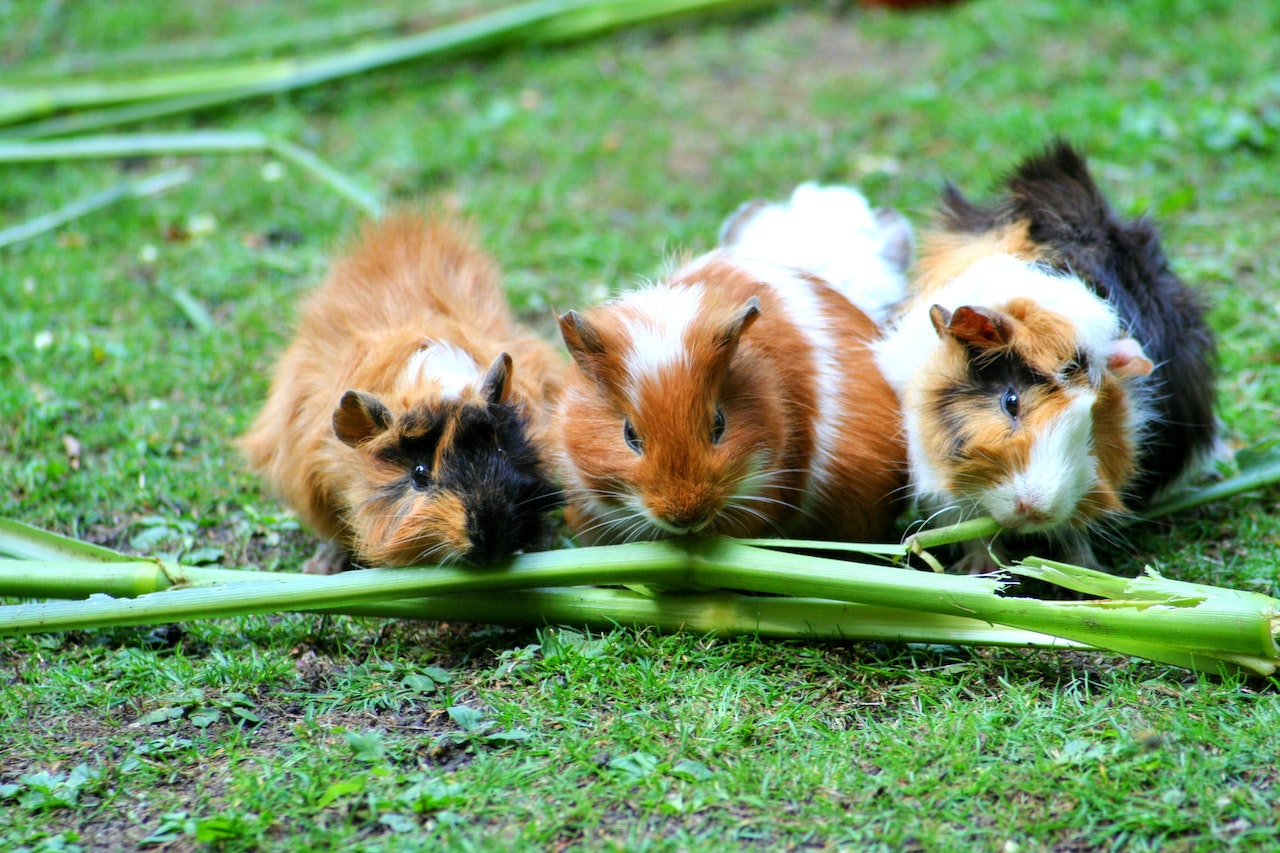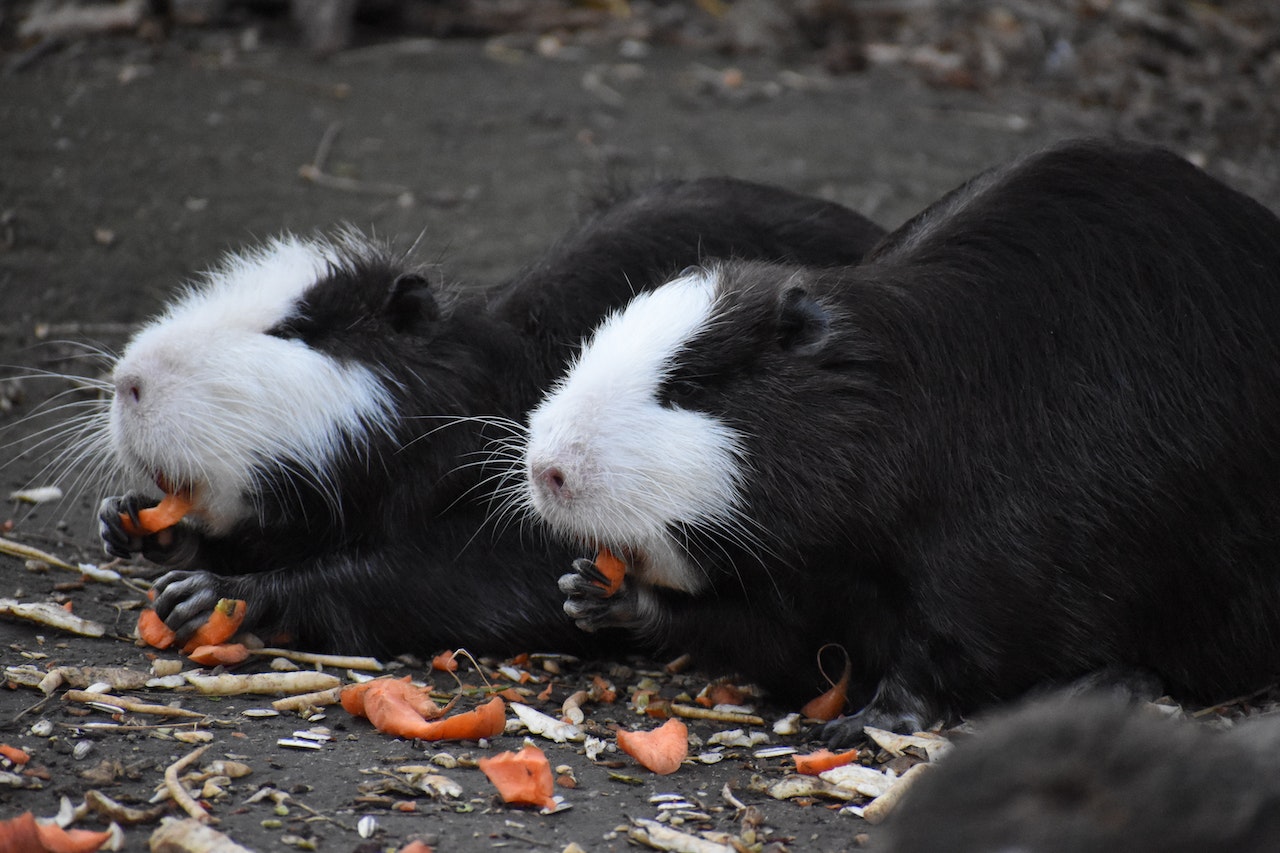
Thyme is a perennial aromatic plant that belongs to the mint family. It has small, oval-shaped leaves that are grey-green and grow in pairs on woody stems. Thyme produces small delicate flowers that are pink, purple, or white in color and bloom in early summer. This aromatic plant has been used for culinary and medicinal purposes for centuries, and it is known for its strong, pungent flavor and aroma. It is a popular herb used in cooking as well as flavor a wide variety of dishes like soups, stews, sauces, and marinades
Thyme function also extended to herbal medicine, it is believed to have several health benefits including, anti-inflammatory, antioxidant, and antimicrobial properties. It can also be commonly used to treat respiratory infections, digestive problems, and menstrual cramps in humans. However, can the health benefits be extended to guinea pigs? Can guinea pigs even eat thyme? Continue reading this article to find out the answer.
Can guinea pigs eat thyme?
Yes, guinea pigs can eat thyme, but it should only be in moderation. Thyme is one of the safe herbs that guinea pigs can munch on due to the nutritional benefits it offered. It is a good source of vitamin C, which is important for guinea pigs as they can not produce this vitamin on their own, therefore, they need to get it from their diet. Thyme also contains some fibers and other vitamins and minerals that can be beneficial for guinea pigs. However, a decent amount of calcium content can be found in them, and this can cause digestive issues or urinary problems. Therefore, it is of great importance to feed your little cavies fresh and raw thyme in moderation.

What is the correct serving size for feeding thyme to guinea pigs?
Guinea pigs should not be fed thyme as a regular part of their diet. While thyme is not toxic to guinea pigs, it is not the food that they would naturally consume in the wild. Therefore, it is not recommended to feed thyme to guinea pigs as a regular part of their diet. However, if you choose to offer thyme to your guinea pigs as an occasional treat, it should be given in very small quantities. Hence, a safe serving size would be a small sprig or a few leaves of thyme no more than once a week. It should be fed with other varieties of food for guinea pigs in other to balance out some nutrients in them.
Nevertheless, if you are just introducing thyme, lesser amounts compare to the standard proportion are good. Proper 24-hour observation should also be placed on them in case of allergic reaction.
What are the health benefits of feeding thyme to guinea pigs
Thyme is custodial of various nutrients that can help your guinea pigs remain healthy. Below are some of the benefits such nutrients provide for your little cavies when offered in the correct proportion.
Scurvy prevention
Guinea pigs are generally known to lack enzymes that can help them produce vitamin C in their body system therefore, they seek vitamin C, a nutrient that prevents disease or deficiency of this nutrient (scurvy). Fortunately, thyme, a special type of herb is enriched with these nutrients and thereby helps the immune system of your little cavies to fight against Scurvy and every other type of inflammatory disease.
Prevent overgrown teeth
Thyme, in addition to some other vegetables, can serve as a food, this is due to its texture and the amount of fiber they contain which can aid in easy digestion. This can be beneficial for them because regular chewing reduces the rate at which the teeth of your guinea pigs grow. Continuous growing of their teeth may cause discomfort and self-harm to your pets.
Maintain weight gain
Thyme is also known to have a low-calorie content which is essential for the reduction in weight gain. Guinea pigs suffering from obesity or diabetes should endeavor to feed on thyme because of their low calorie and sugar content.
Improve the Activity of your guinea pigs
Thyme may contain a decent amount of calcium which is useful, especially in pregnant or nursing guinea pigs to help them increase their activity performance. Little or baby guinea pigs can also feed on hay in other for their bone to be strengthened. However, thyme has a high proportion of calcium, and such varieties should be fed in moderation.
Possible health risks attached to feeding thyme to guinea pigs
Urinary blockage
Thyme is enriched with a decent proportion of calcium content. High consumption of this nutrient can develop into the accumulation of stones in the urinary tract which eventually leads to painful urination for your pets and the presence of blood during the urine. This complication is often termed kidney or bladder stones.
Digestion problem
Thyme also contains a decent amount of sugar and some other nutrients, this is not a problem when it is correctly served. However, if it is being overfed to your little cavies, it may result in stomach or abdominal ache, bloatedness, cramps, and other related digestive problems.
Other types of herbs that can be given to guinea pigs
Guinea pigs can eat a variety of herbs in addition to thyme. Some safe options include parsley, cilantro, basil, dill, oregano, and mint. These herbs not only provide additional nutrients for your guinea pigs, but they may also add variety to their diet and keep them interested in food. However, it is important to introduce new foods gradually and in small quantities to avoid digestive upset.
Additionally, Make sure to wash all herbs thoroughly before feeding them to your guinea pigs to remove any potential pesticides or other contaminants
Conclusion
Feeding thyme to guinea pigs in small amounts is considered safe, as thyme is a herb that is safe for consumption by humans and many animals. However, it is important to remember that guinea pigs have specific dietary requirements, and their diet should primarily consist of hay, fresh vegetables, and a small amount of pellet food. For other additional information regarding guinea pigs feeding on thyme, you can read through this article for more explanation.



